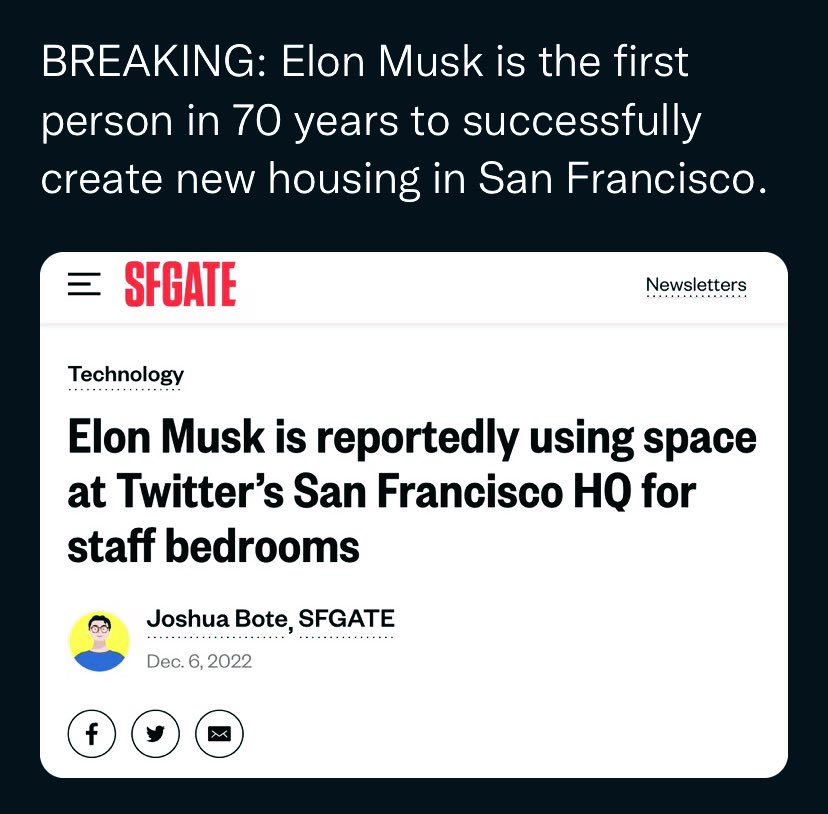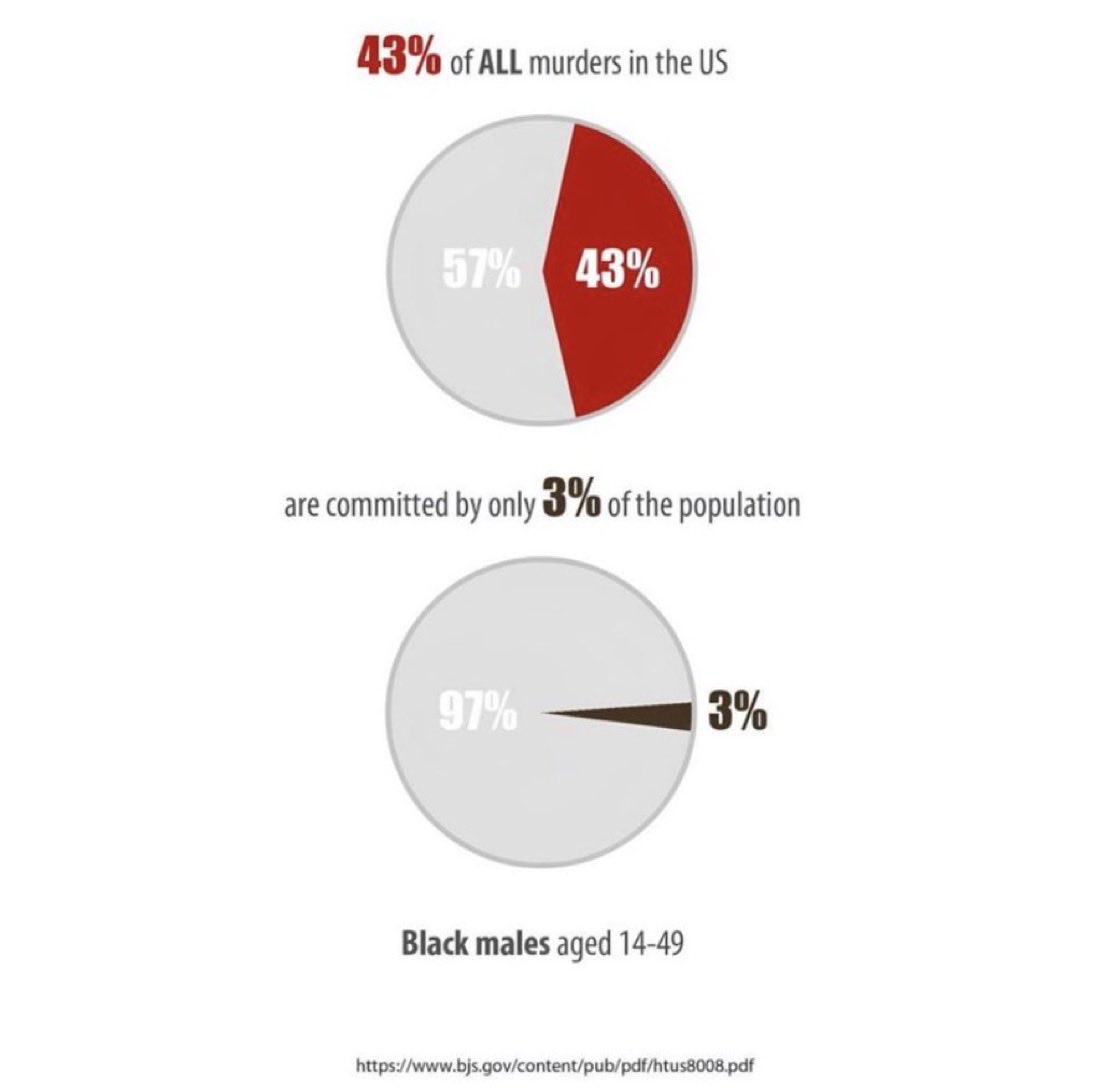Initially the state was powerful with total control over it’s church, it’s money & it’s media. Then…
🔵 1802 (Thomas Jefferson)
Separation of Church & State
🔵 2008 (Satoshi Nakamoto)
Separation of Money & State
🔵 2022 (Elon Musk) <<—
Separation of Media & State
A 🧵👇
🔵 1802 (Thomas Jefferson)
Separation of Church & State
🔵 2008 (Satoshi Nakamoto)
Separation of Money & State
🔵 2022 (Elon Musk) <<—
Separation of Media & State
A 🧵👇

Here’s prev 🧵on Elon Musk & Twitter
https://twitter.com/DeepBlueCrypto/status/1598376504961994764
Twitter under @elonmusk is the fastest growing media organization in the world. Twitter is doing more investigative journalism than US top 5 combined (CNN, CBS, NBC, ABC, FOX), run by citizen journalists. Read…
#TwitterFiles #TwitterFiles2
#TwitterFiles #TwitterFiles2
@elonmusk knows how to run large corporations optimally, effectively & efficiently with great quality.
Imagine whats possible if only he gets to run the Federal government 🤔
Imagine whats possible if only he gets to run the Federal government 🤔
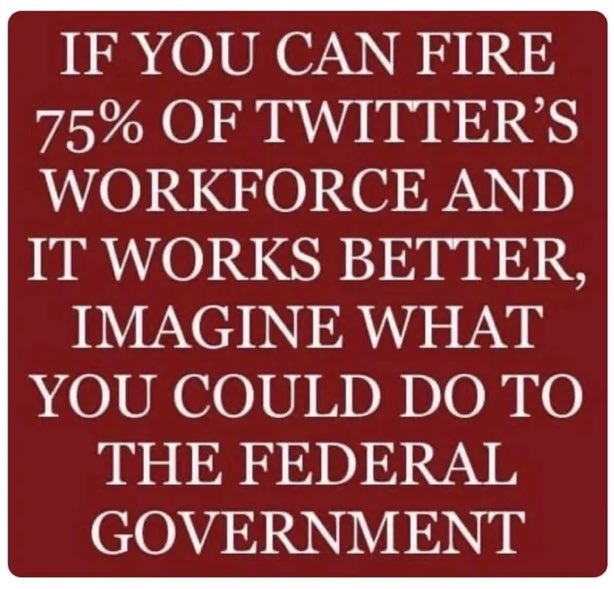
San Francisco building inspectors are launching an investigation because @elonmusk doesn’t bend his knee to the Democrats. It’s a bitter response to #TwitterFiles expose.
The inspectors time is better spent relocating 1000s of homeless from those streets & under the bridges.

The inspectors time is better spent relocating 1000s of homeless from those streets & under the bridges.


This was 51 years ago, a feat achieved with pre-pocket calculator technology, that no advanced nation has been able to replicate since. @elonmusk with @SpaceX will be the first to try this feat again I guess. Protect Elon at all costs.
With $200 billion in wealth @elonmusk could literally be sleeping on the most expensive & exotic beds in the world ever, but he chooses to sleep on #4 for a reason.
He chooses to make things right at Twitter what was wrong for so long. He chose to uphold #FreedomOfSpeech



He chooses to make things right at Twitter what was wrong for so long. He chose to uphold #FreedomOfSpeech




Learn how to run a successful business from @elonmusk 

Thanks @elonmusk for #TwitterFiles and the transparency it brings to people who genuinely care about independent dialog on media platforms. We were literally worse than China or North Korea when the speech was blocked or shadow banned. 

Thanks @elonmusk for bringing transparency to one social platform and providing a neutral venue for political discourse. I’m sure platforms like Facebook, Google, Instagram, YouTube, WhatsApp are all affected to some degree of the same leftist bias. 

Agree with @lopp @cobie on some of the historical accounts to be saved. Is there a way to save the old accounts data into an archive for user search & retrieval purposes so when accounts are purged, data is still available.
May be an archive tag for those would be appropriate.
May be an archive tag for those would be appropriate.
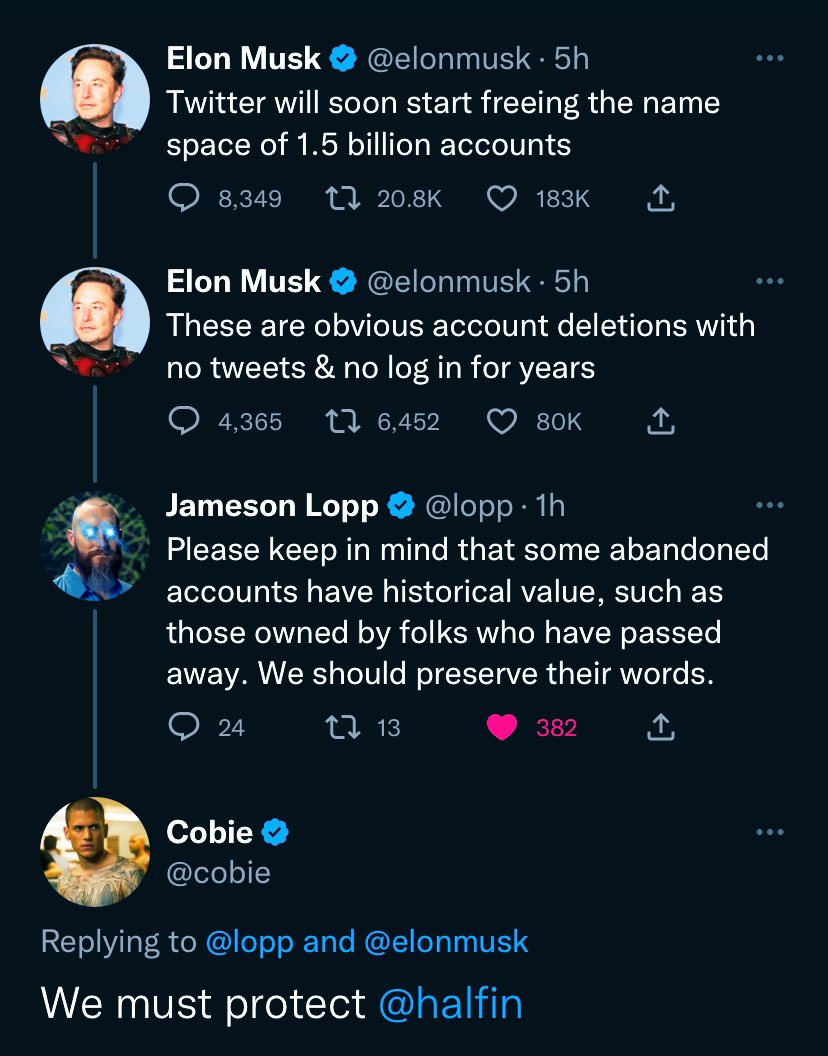
Politicians:
- People vote them in every few years
- People pay for their services & jobs
Elon Musk:
- People pay for his cars & rockets
- People pay for Twitter & advertising
It’s a total shame @elonmusk did more for people in 6 weeks than what politicians did in 6 decades
- People vote them in every few years
- People pay for their services & jobs
Elon Musk:
- People pay for his cars & rockets
- People pay for Twitter & advertising
It’s a total shame @elonmusk did more for people in 6 weeks than what politicians did in 6 decades
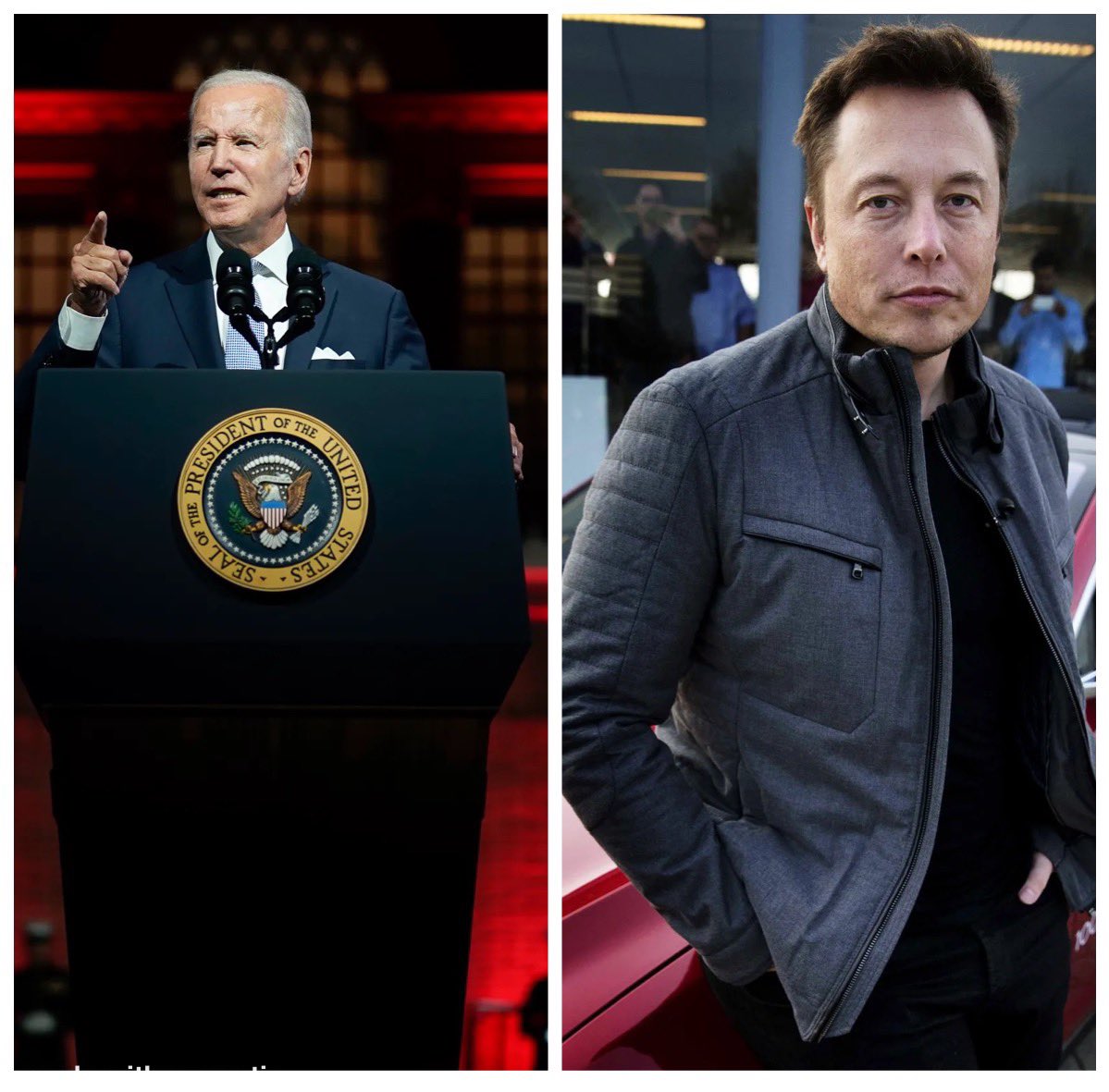
Next target #SnapChat 😂 
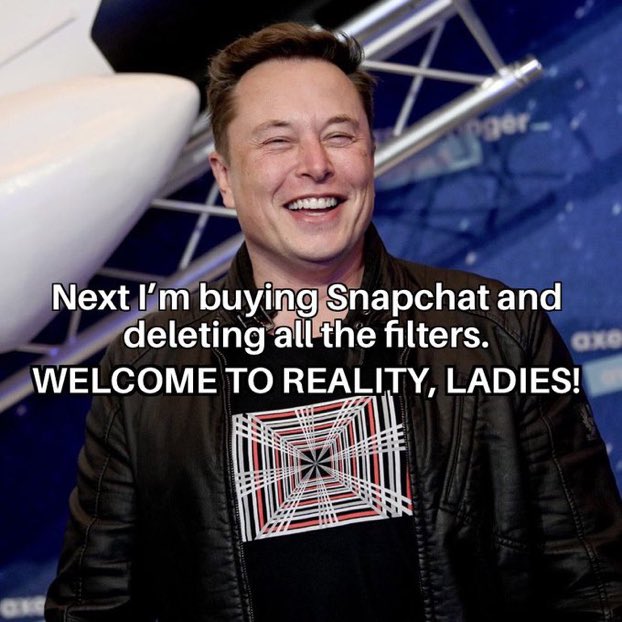
Given all the #TwitterFiles information the department of #TrustAndSafety was effectively running Twitter. Jack wasn’t even involved in a lot of these day today operations. I think @jack has a pure heart but the rest of them deserve punishments for sure. 

Imagine what Elon Musk is capable of if he gets to run google, Facebook, YouTube, Instagram & Snapchat 
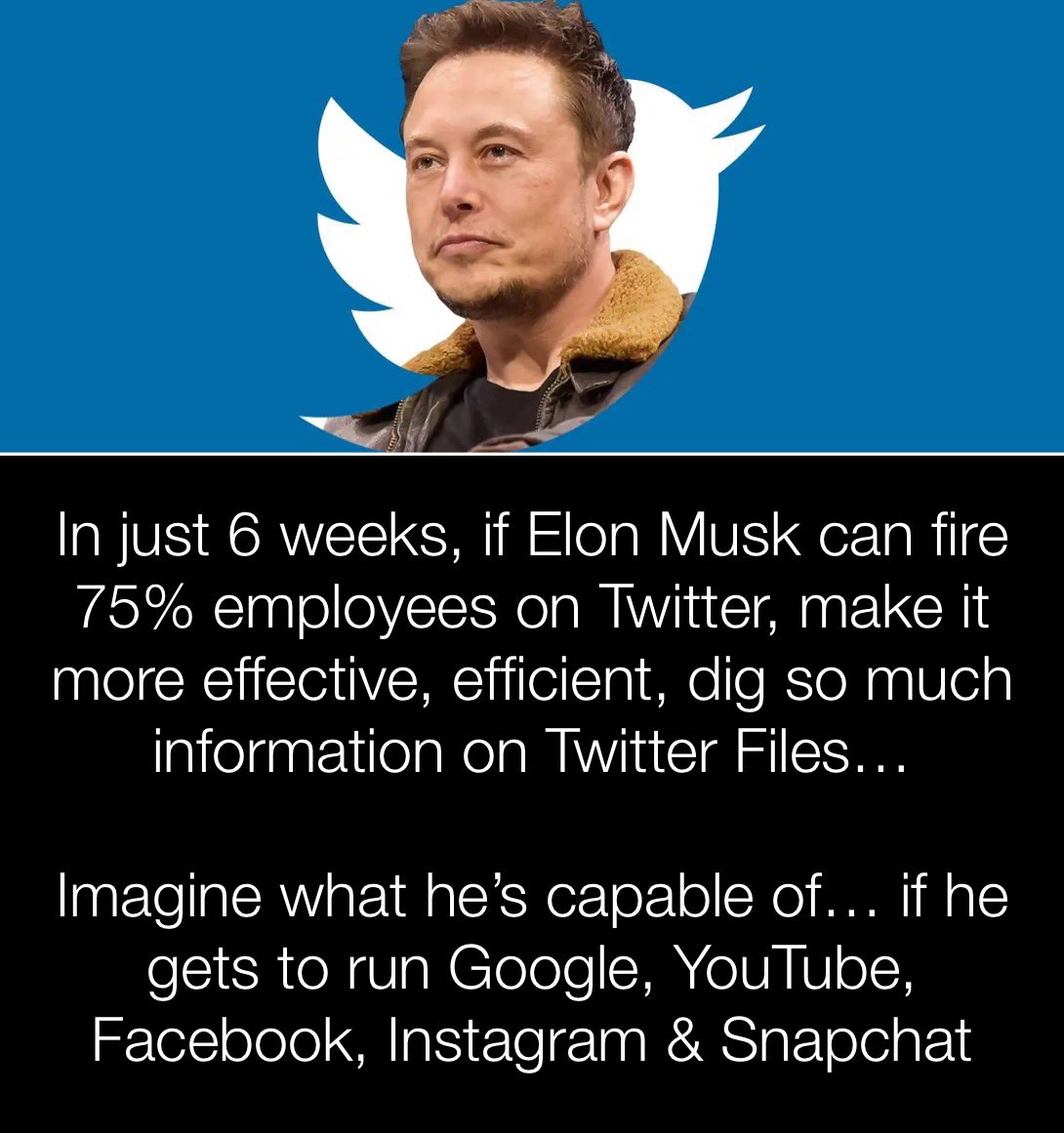
Before vs. After #TwitterFiles 😂 



When the real truth come out it’s misinformation. Now @elonmusk is a terrorist or might be Russian spy 😂 
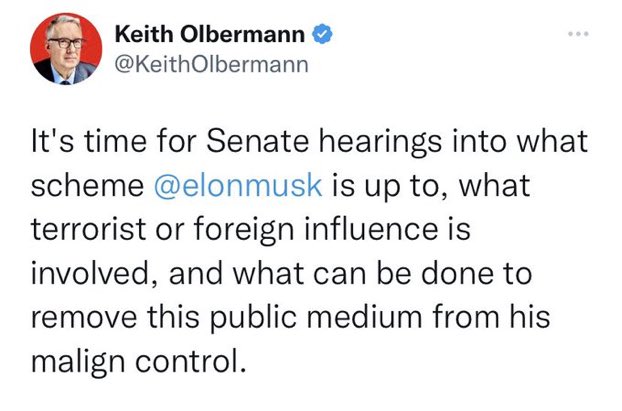
• • •
Missing some Tweet in this thread? You can try to
force a refresh


